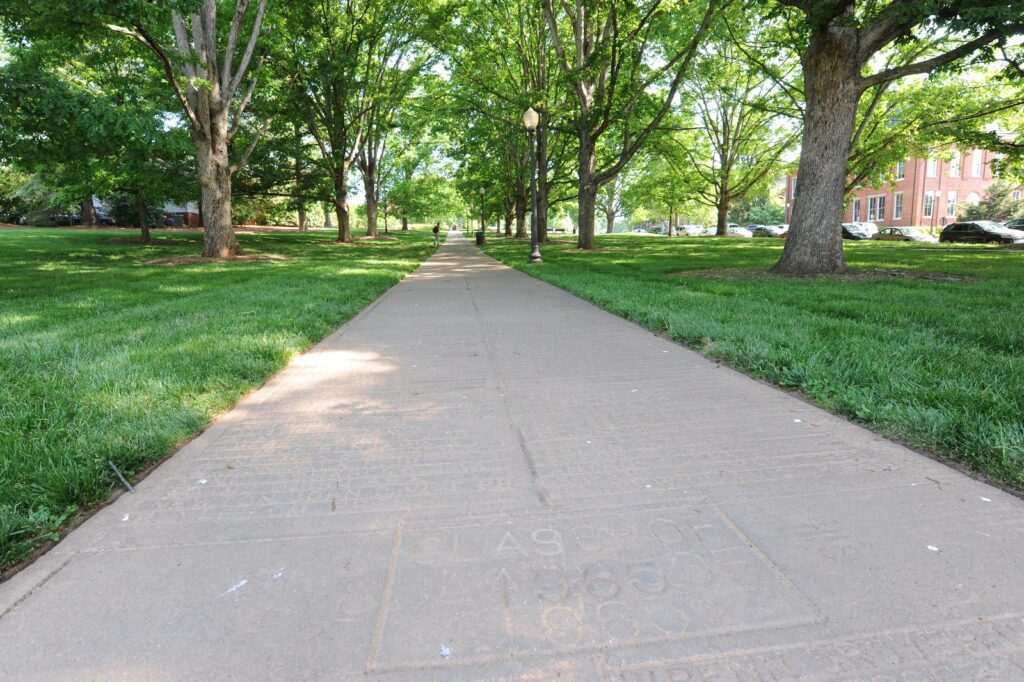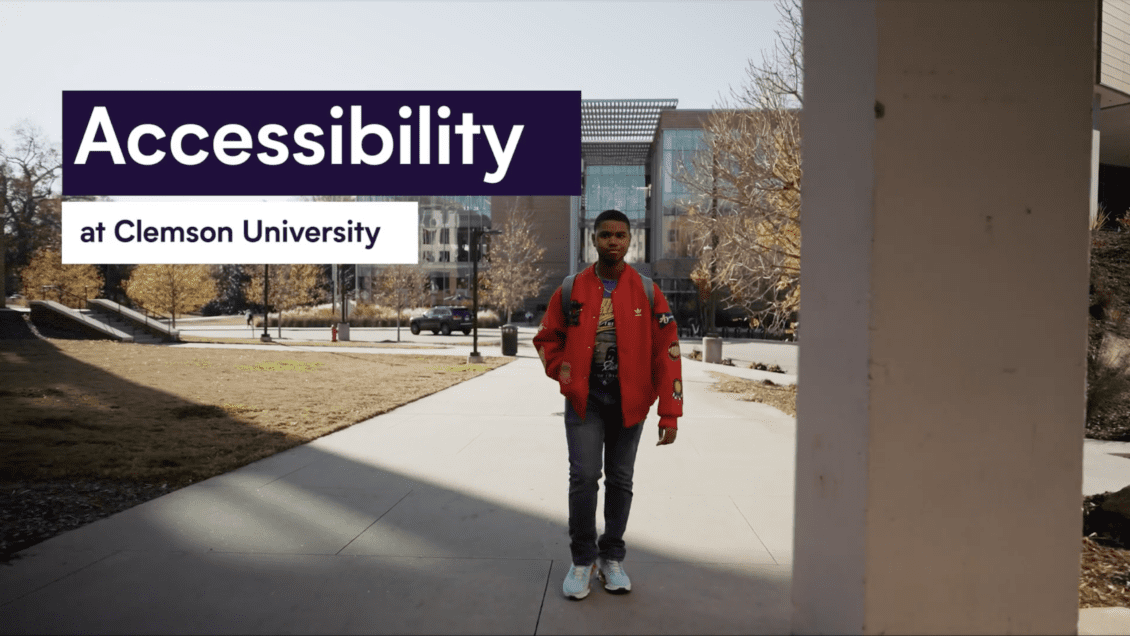Clemson University remains committed to creating an accessible environment for all students, faculty and staff. As part of this commitment, experts across the University worked to build a new website to support accessibility at Clemson and a new policy to conform with federal updates to the Americans with Disabilities Act (ADA).
Dan Lewis, director of digital accessibility, is grateful for the collaboration and excited about the impact these resources will have on the Clemson community and beyond.
Accessibility is everyone’s responsibility,” Lewis said. “We look forward to continuing to provide resources to support the Clemson community in creating an environment that is accessible to everyone, regardless of disability.”
Overview of Accessibility Website
Clemson University’s accessibility information had been housed on the “Accessibility Portal.” Already a tremendous resource offering helpful information and connecting people to accessibility resources, the new launch, Accessibility at Clemson University, further connects students, faculty and staff to programs, communities, resources and support – from accessible transportation options and information on service animals to guidance on authoring accessible PowerPoint presentations.

Digital accessibility resources have been expanded, with guides to help employees create accessible electronic content. For Walker Massey, document accessibility specialist, this website upgrade is a tremendous advancement in resources and education for the campus community.
“Our goal in the writing and design of the digital accessibility section of this site was to create a collection of easy-to-navigate guides where technical specifications apply to various authoring tools in a relatable, conversational tone,” Massey said. “We hope this site offers you support and guidance as you create accessible digital content.”
For faculty members like Clare Mullaney, assistant professor of English, this website’s resources are crucial as faculty consider how students access course material and they design their courses.
“Clemson’s new accessibility website makes a statement about the importance disability plays in academic life. Rather than an exception, it’s framed as central to the way faculty might design courses,” said Mullaney. “Thinking creatively, together, about the many ways students might access course material is the very best that thinking and learning can do.”
Overview of Digital Accessibility Policy
Beyond the Accessibility website, the digital accessibility policy seeks to ensure Clemson’s online spaces are places where all community members – acknowledging different needs and experiences – can share and receive meaningful contributions. This policy applies to all University employees who create, design, purchase, implement or develop communications and technology used for academic and business content.
Staff and faculty are encouraged to review accessibility best practices and follow the Web Content Accessibility Guidelines. Examples of how these guidelines are met include:
- Providing captions for videos
- Adding descriptive alternative text (“alt text”) for images
- Ensuring documents, textbooks and assignment systems are accessible to all students
- Using software that is compatible with keyboard navigation and assistive technologies
Monique Everroad, director of policy initiatives in the Office of University Ethics and Compliance, says the policy and online resources are vital for the campus community.
In addition to complying with federal regulation, this policy supports a proactive mindset,” Everroad said. “Making things accessible opens the opportunity for everyone to equitably engage in school and work. The Accessibility Team did a tremendous job taking the guesswork out of how to comply with this policy through the tools and resources provided on the new Accessibility website.”
What’s next?
Members of the Clemson community are encouraged to explore Accessibility at Clemson University to learn how to ensure course files, documents, and information technology are accessible. As always, students, faculty and staff are encouraged to report accessibility barriers. For support and more information, contact the Digital Accessibility Team. Clemson’s policy and supportive website demonstrate the institution’s commitment to elevating the student experience and improving lives within the Clemson community throughout the state of South Carolina and beyond.
Get in touch and we will connect you with the author or another expert.
Or email us at news@clemson.edu

